Necessity
Structures
Fuel Cycle
World Energy Situation
The world's population is predicted to continue increasing in the 21st century. Because of this population growth, combined with economic development in Asia and other regions, it is expected that global energy consumption will keep growing and that supplies of energy reserves, which are limited, will become tight before long.
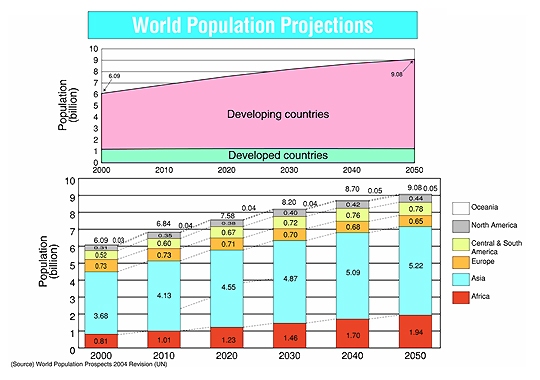
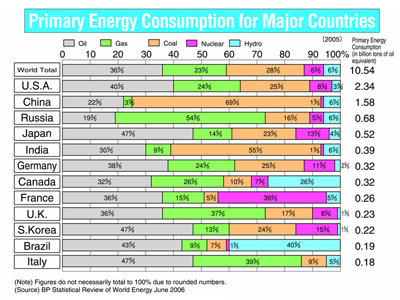
Worldwide primary energy consumption reached the equivalent of 8,752 million tons of oil in 2000. While the most used energy source differs in each country, Japan's dependence on oil reaches 50%, which is relatively high, compared to other countries. The entire world's reliance on oil is also as much as 40%, which is greater than on any other energy source.
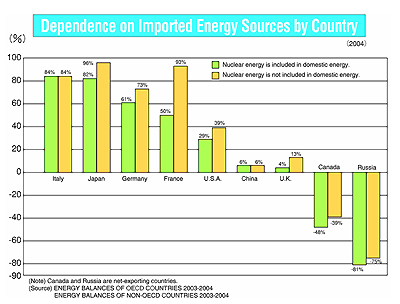
Japan has almost no natural resources of its own, and depends on foreign sources for approximately 80% of its primary energy requirements. Moreover, unlike regions such as Europe, Japan is an island country, which makes it difficult to exchange energy supplies with neighboring countries through transmission lines or pipelines.
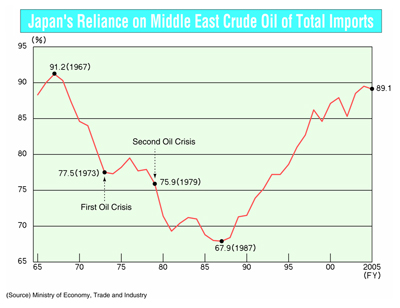
Japan's dependence on crude oil imports from the Middle East is increasing each year, and is now higher than during the oil crises of the 1970s. In addition, it is expected that total imports of crude oil will increase due to economic growth in China and other Asian countries. Thus, it is important to promote the diversification of energy sources to ensure energy security. Global Warming Issues
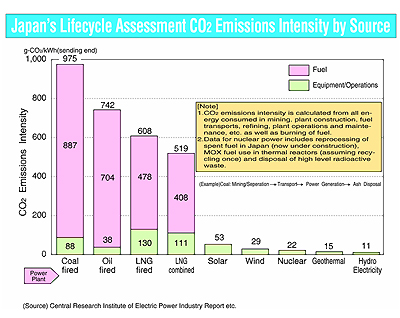
Increasing energy consumption has brought up a variety of environmental issues. In particular, CO2 emissions from fossil fuels are thought to be one of the causes of global warming. Nuclear power does not emit CO2 in the generation process, making it the preferred option as an energy source for mitigating global warming.
© Tokyo Electric Power Company Holdings, Inc.